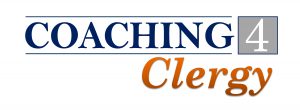
As coaches, we all have habits that we need to break or change. These bad habits can affect our confidence, stop the flow of conversation with a client, or distract us from a client’s most pressing issue.
Questions are at the core of every coaching interaction, so we’re starting with the habit of jumping into the space after we’ve asked a question. Sometimes that means explaining the question, other times we might pile on additional questions before the client has a chance to reflect or respond.
Where does this habit come from? You want to ask the right question, even the perfect question. You hear what you’ve asked, and decide it wasn’t good enough. The explainers worry that it wasn’t clear, while the multipliers come up with better and better ways to get at the insight you think needs to come out.
Believe that your client will take the question in whatever direction they need to go. Trust that if they need an explanation, they will ask.
Coaching questions are a springboard. They don’t have to be perfect; they don’t have to be fully explained or fully understood in a particular way. Let the client decide what needs to come out.
I know one seasoned coach who regularly asks clients, “And what else?” That demonstrates this concept of a springboard perfectly. You’re basically saying to the client, “Keep talkin’…” You’re not asking for information; you’re keeping the conversation going.
The question as a springboard is a powerful mindset change. You can even visualize your client on a diving board, high above a pool. The higher they are, the further they can see, the wider their vantage point—much wider than if they were standing at the side of the pool.
The coach is the one on the sidelines, while it’s the client up on the springboard. I recently heard a student say, “What makes a question powerful is the client, not the coach.” That was really insightful, and something we all need to remember when we’re breaking this habit.
We’re not the ones responsible to bring that perfect powerful question or for the client having that aha moment. It’s what the client does with the question that matters.
As you’re working to change this habit, consider one of the markers we use when assessing a coach’s mastery of the ICF Competencies (Competency 7: Evokes Awareness):
7.6: Coach asks clear, direct, primarily open-ended questions, one at a time, at a pace that allows for thinking, feeling, or reflection by the client.
Once you’ve asked a question, let go of your own judgment and give your client full, uninterrupted access to that springboard to further awareness.

 Coaching Out of a Rut
Coaching Out of a Rut